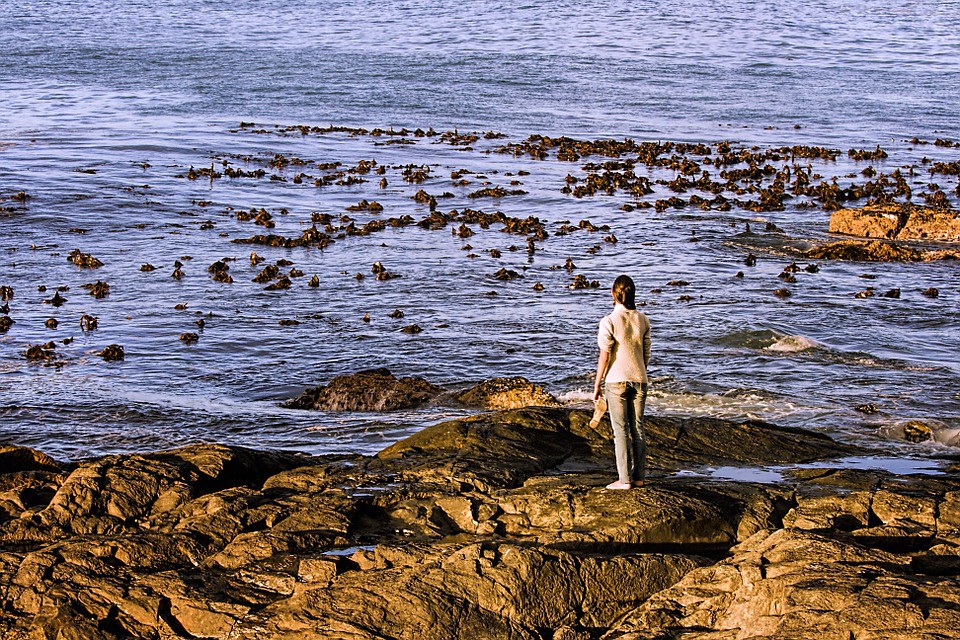I was recently invited to take part in a forum where the topic of solitude was under discussion. The topic for discussion was simple — is our Self Worth affected, and indeed deeply intertwined, with the experience of solitude?
The question posed was this: “We are such a switched-on society … always online … on Facebook with your 1000 closest friends … checking instagram, twitter, email, voice mail, texts messages …How do you switch off? Where do you go or what do you do to find some… peace and solitude? Is it a location or maybe an activity? Is having a “time out space” important for our own physical and mental health? ”
It was a fascinating question and one that made me ponder how solitude is actually different from being ‘alone’. After a bit of research, I understood that loneliness is marked specifically by a sense of isolation. Solitude, on the other hand, is a state of being alone without being lonely, and can lead to a greater sense of self-awareness.
Strangely, one of the lead stories in the news was, “Why this man is going to live on an iceberg.” No electricity, no hot water, no company and absolutely freezing temperatures. An iceberg is hardly the place one would choose to live but one man, adventurer Alex Bellini, is calling it home for a WHOLE year. And although he’s going in to the iceberg in an effort to highlight climate change, I was left with the sensation he’ll find the ultimate meaning of the term ‘time out’. His experiences will undoubtedly include a battle with being alone, and whether he experiences loneliness, solitude or something in between will be worth following in the future.
But as we can’t all live on an iceberg (and probably don’t really want to!), we need a variety of ways to cope with the resulting pressures of daily life. We need to maintain some semblance of balance, and a sense of purpose in our lives. One of the best ways is by seeking, and enjoying, solitude.
From the outside, solitude and loneliness look a lot alike. Both are characterised by being on one’s own, but all resemblance ends at the surface. Loneliness is a negative state, marked by a sense of isolation. One feels that something is missing. It is possible to be with people and still feel lonely — perhaps the most bitter form of loneliness. Solitude is the art of being alone without being lonely. It is a positive and constructive state of engagement with oneself. Solitude is a desirable condition; it is being whole and satisfied with your own wonderful and sufficient company.
Research into solitude has shown some strong benefits:
1. Reduced stress
2. Better memory retention
3. A deeper sense of empathy
4. Self-healing through meditation
5. And most importantly, boosting self-esteem.
The question that interests me is how solitude benefits self-esteem.
Self Worth can be strengthened by developing personal interests with passion and creativity that often require solitude. When you accomplish something on your own, alone, there is a positive effect on both your self-confidence and self-esteem. With the constant barrage of social media, we can’t really think deeply about important issues because we’re distracted by the constant flow of mostly useless information. We need to build up our sense of self to know we don’t need the constant validation of others through ‘likes’ and other forms of approval — we can feel good about ourselves in our own space.
A wonderful book called Solitude: A Return to the Self by Anthony Storr challenges the established belief against solitude that says, “…interpersonal relationships of an intimate kind are the chief, if not the only, source of human happiness.” Indeed, most self-help literature still places relationships at the centre of human existence. Storr’s book, however, cites numerous examples of brilliant scholars and artists, from Beethoven and Kant, to Anne Sexton and Beatrix Potter, in order to demonstrate that solitude ranks equally alongside healthy relationships as having a major impact on an individual’s well-being and productivity, as well as on society’s progress and health. But solitary activity is essential not only for geniuses, says Storr, the average person, too, is enriched by spending time alone.
“My solitude doesn’t depend on the presence or absence of people; on the contrary, I hate he who steals my solitude without, in exchange, offering me true company.” Friedrich Nietzsche
Australian Clinical Psychologist and leading Self Worth advocate Dr Lars Madsen suggests that solitary time is increasingly recognised as central to a person’s well-being, and when people spend time on themselves they reduce stress levels, increase their creativity and feel less resentful of the demands others place on them.
A day of solitude, it seems, is not a day wasted.
Elizabeth Venzin is the Founder and CEO of the Australian Not-for-Profit Organisation The MindShift Foundation. Resources about preventative mental health can be found on the MindShift website www.mindshift.org.au
Originally published at medium.com


